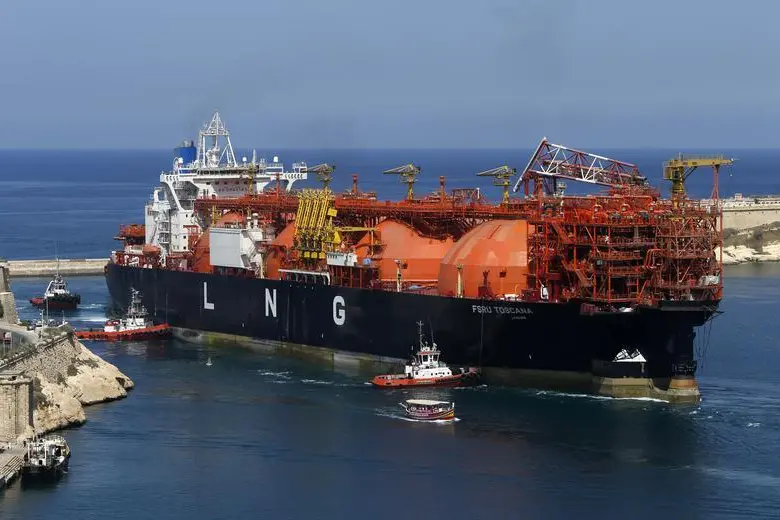PHOTO
Egypt is expected to ramp up liquefied natural gas (LNG) imports as its own natural gas production falls and power demand climbs over the summer period, according to industry sources and data.
Returning to imports would reverse the most populous Arab country's position as a natural gas exporter in recent years as part of a plan to become a reliable supplier to Europe.
Egypt's government has bought at least two LNG cargoes this month for immediate delivery and is expected to purchase up to 20 over the spring and summer in readiness for increasing power demand, three industry and trading sources told Reuters.
Egypt, which faces growing demand for gas from its population of 106 million, is expected to buy three cargoes per month between July and October, regional media outlets reported.
The government has been seeking a regional supply role, selling Egypt's own gas and re-exporting Israeli gas as LNG to the Middle East, Africa and Europe.
Although it turned into a net exporter from a net importer after the discovery of the giant Zohr gas field in 2015, there have been few large discoveries since and production at the field had fallen partially because of water infiltration issues, analysts and industry sources had told Reuters.
Hamdy Abdelaziz, a spokesman at Egypt's petroleum ministry, told a local talk show on Sunday that the drop was due to the "natural decline of discovered wells," adding that this is expected to be offset by new wells being drilled in the field.
In 2023, Egypt's total natural gas production fell to its lowest since 2017, figures from the Joint Organisations Data Initiative (JODI) show.
Gas production in 2023 was around 59.29 billion cubic meters (bcm), falling 11.5% year-on-year to the lowest production level since 2017, when it was around 50.72 bcm.
Last year, Egypt began a $1.8 billion programme to drill natural gas exploration wells in the Mediterranean Sea and Nile Delta, with the aim of drilling 35 in two years.
The reduction in production has come after a wave of rolling blackouts last summer shocked Egyptians who had grown used to a decade of reliable power supplies.
Power cuts have remained in place since, except for a temporary halt during Ramadan and are widely expected to continue throughout the summer.
Egypt's petroleum ministry did not immediately respond to a request for comment.
(Reporting by Sarah El Safty and Marwa Rashad; Editing by Alexander Smith)





















